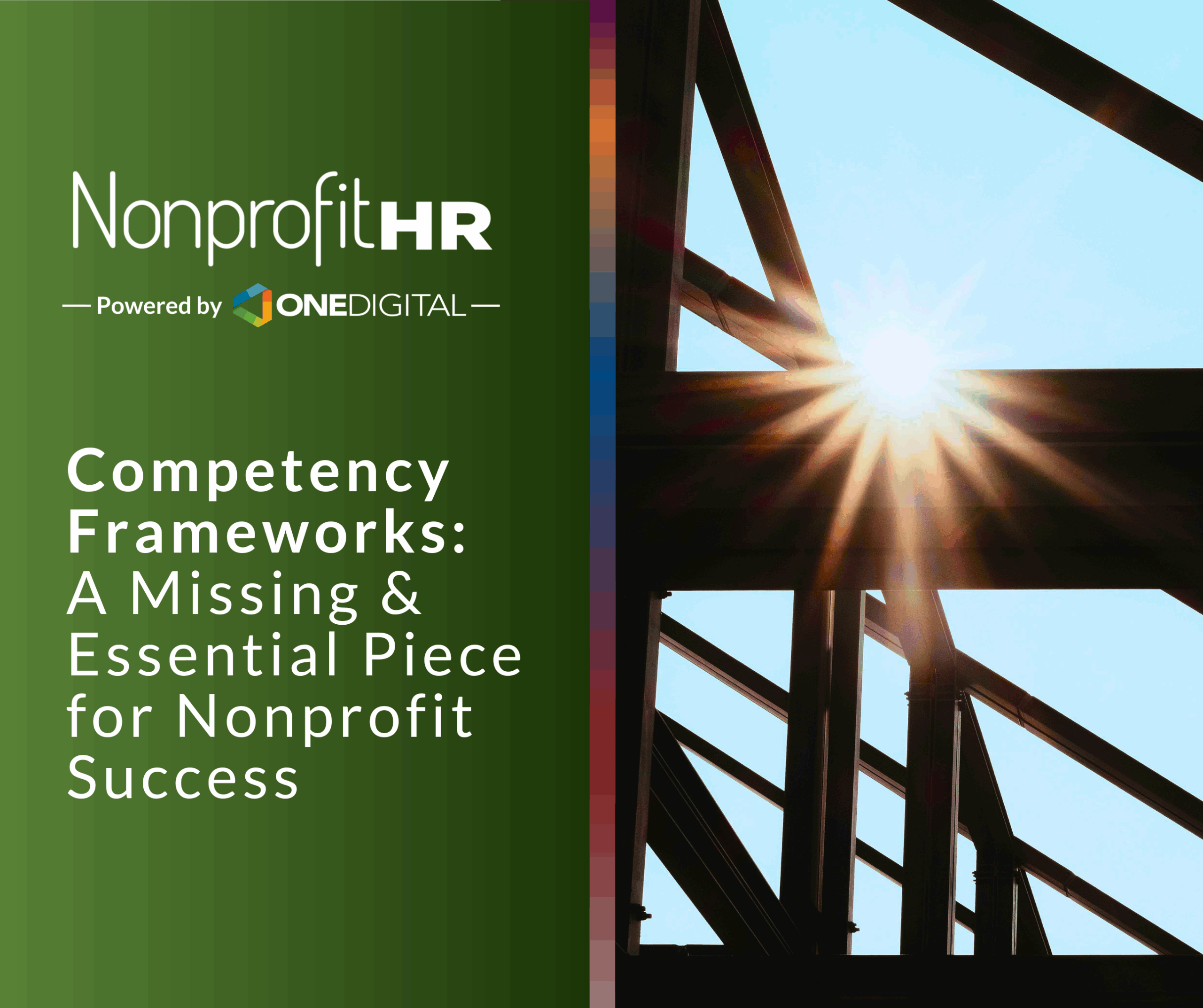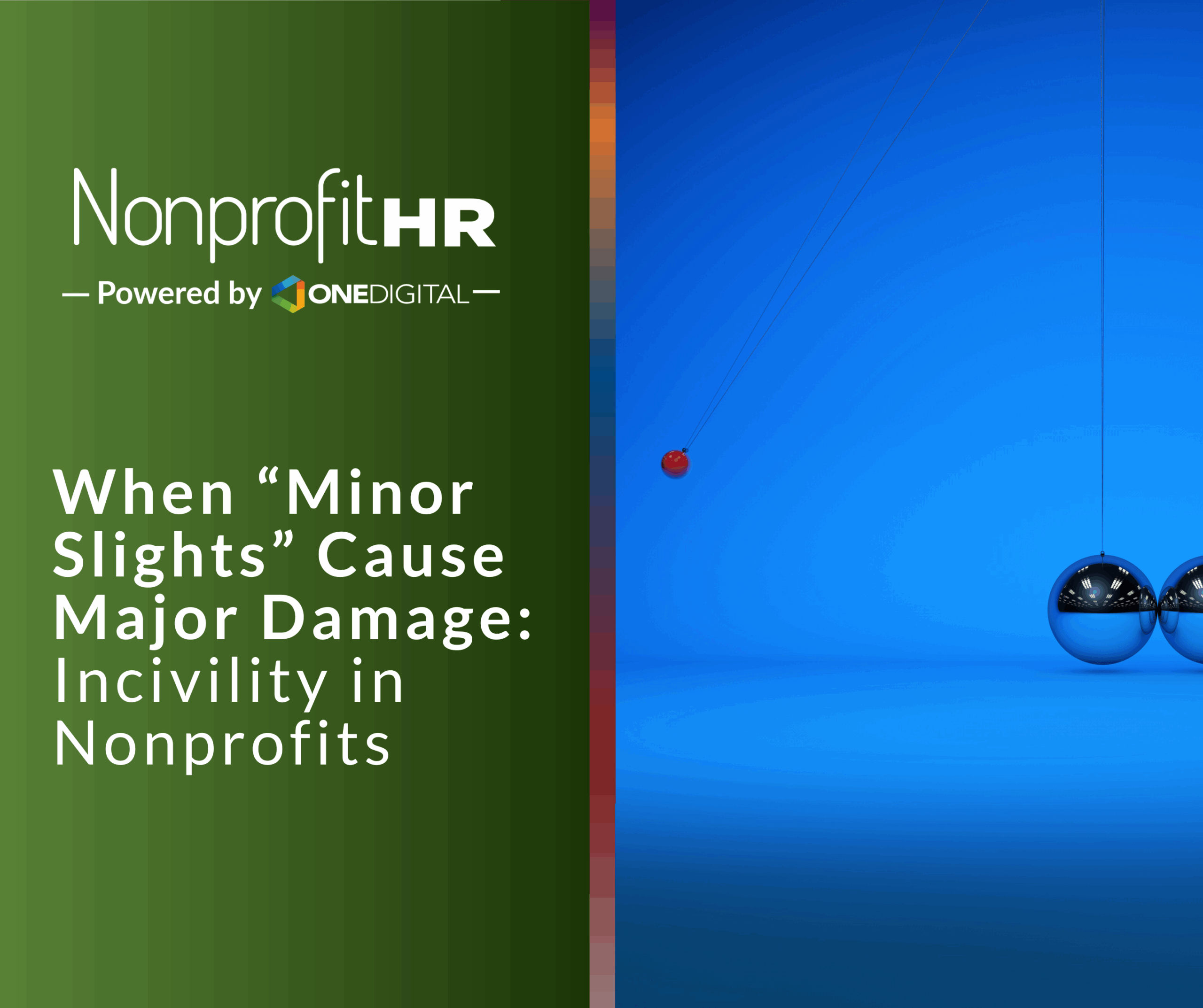WTOP: 5 ways nonprofits can…
Now more than ever, it is critical for social impact leaders to confirm they are fully leveraging their investment in talent management. As organizations focus on their impact, and as many social impact organizations use this moment to reimagine their impact, it is essential for leadership to ensure talent management practices are optimized to attract, engage, develop and retain top talent. After all, it is your people that advance your mission!
If your social impact organization is currently experiencing one or more of the changes below, now is the time to assess your HR programs, practices and processes.
Budget Restrictions
If your organization is facing budget cuts, it is especially important to optimize funding for your HR function. An HR assessment equips leaders with the knowledge of how to intentionally invest current funding in the HR function to create the most impact—to keep your organization’s talent management initiatives at the forefront.
Additionally, assessments articulate how HR activities correlate with current and emerging organizational priorities and how these activities might be performed more effectively and efficiently, consistent with federal, state and local compliance requirements.
Limited Internal HR Bandwidth
For organizations with an HR “department of one”, it is valuable to determine which areas of your organization’s HR function require additional support. Why? For one reason, it can be a challenge for a solo HR practitioner to juggle the tactical, operational and strategic responsibilities of an entire HR department. Further, HR assessments inform the organizational leader and/or non-HR leader positions with HR oversight responsibilities (such as COO or CFO), of the strengths and weaknesses of the HR function. This is especially helpful in situations where a non-HR leader feels that “we don’t know what we don’t know,” as an assessment can provide a comprehensive playbook.
Unexpected Organizational Growth
HR assessments serve as an excellent strategic planning tool and are particularly helpful to leaders in determining where to place emphasis during times of growth and/or change. Findings from an assessment aid in developing a roadmap for transformational initiatives that support the organization’s current operations and future growth strategy.
If an organization is experiencing rapid growth, they may now need an HR presence—the HR assessment recommends the team structure, role definitions and competencies needed to deliver on defined outcomes as they evolve to support the mission.
HR Leadership Transitions/Hiring for a New HR Leader
As new leadership enters your organization, an HR assessment can also help inform this leader’s early days as they begin to shape strategy. It is important to evaluate the strengths and weaknesses of your HR function, as well as recognize and eliminate potential areas of concern. This proactivity sets your new HR leader up for success by highlighting areas to focus on within first 90-days of hire. This knowledge provides a data-driven playbook for the leader on how to best move talent management practices forward.
Why This Matters?
Organizations should thoroughly assess their HR programs, practices and processes with the goal of understanding how the HR function is contributing to the achievement of the organization’s strategic priorities. Ultimately, HR assessments bolster organizational success by accurately identifying potential areas of concern regarding compliance deficiencies, informing areas that require an emphasis in support of people initiatives, and supporting the overall execution of future strategic priorities in the advancement of an organization’s mission.





























